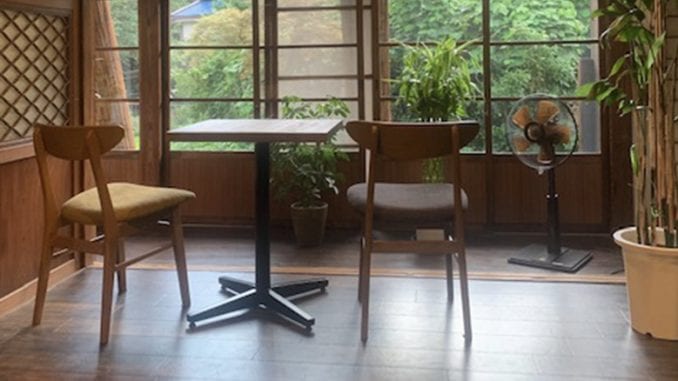
Owner Ricki Oshita’s business is the only in the country that works exclusively with Costa Rican coffee.
BY JOHN W. HORTON III
SPECIAL TO BARISTA MAGAZINE ONLINE
Photos courtesy of John Horton III
Not far from the Hayama Imperial Villa near Japan’s Hayama Beach, you will find Cafetero Hayama. You actually might miss the café, which is nestled amongst trees, almost hidden off of a small side street. Tsutomu (Ricki) Oshita is its owner and operator. The Chinese character for Tsutomo can sound like R-i-c-k-i when pronounced phonetically, a name decision he made for non-Japanese speakers to pronounce the tsu sound. His father was a master Japanese calligrapher, and his calligraphy portraits can be found throughout the inside of Cafetero.
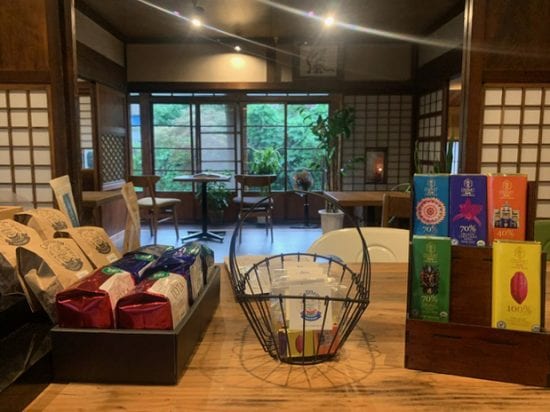
After working in the finance department for four years at Taiyo Fisheries (now known as Maruha Nichiro), in 1986 Ricki was sent to Japan’s largest fishing company subsidiaries in Chile during the Pinochet era, where he ventured through Brazil, Peru, and Paraguay. He was amazed at the mix of people he encountered in Latin America, and it had a huge impact on his view of business—but more importantly, his impressions of the continent. Three years toward retirement, he had an epiphany to do something different; all of these experiences led to Cafetero. Ricki says that his experiences in Chile inspired him to start a business related to Latin America.
Twenty years ago, doing web searches might seem primitive compared to now, but it’s how Ricki found Café Britt, one of the largest coffee exporters from Costa Rica. After ordering Costa Rican coffee online and realizing how easy it was to purchase it and have it delivered to his home, he decided it was a business he wanted to enter. He liked Costa Rican coffee so much he decided he wanted to import it to Japan. More importantly, he wanted to run an ethically minded business that would help change Japanese perceptions about Latin America, while providing economic support to another country.
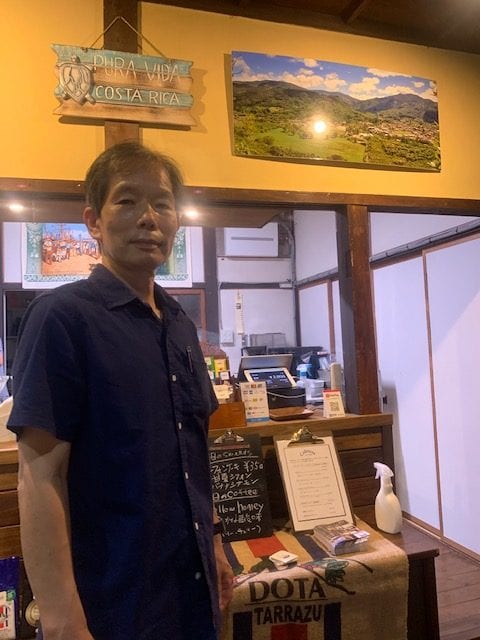
Inquiring about Costa Rican coffee through the Japanese consulate in Costa Rica led Ricki to a member of JETRO (Japanese External Trade Organization) and a partnership to import Costa Rican coffee to Japan. Café Britt dominates the coffee industry in Costa Rica. Ricki’s original idea was to open a café in Japan using their coffee, but they were too large a company for just one person to approach, so he had to create another business strategy. In 2015, however, he was able to form a partnership with Mr. Rodolfo Mora of Blackberry Fields to import Costa Rican coffee into Japan.
“They’re a small country with a huge vision,” Ricki says of Costa Rica. Prior to his venture into coffee, Ricki had never been to any Central American countries. It was an opportunity to introduce Costa Rica to Japan because little is known about it in Japan. It thus became another great opportunity to create a niche for himself in the coffee industry. Ricki’s first idea was to import coffee directly from the producers. It’s difficult to import coffee beans into Japan because the importation business is dominated by large Japanese trading companies, but it is also “risky to import green coffee beans and [there are] strict import controls,” Ricki says.
To deal with this obstacle he decided to import the finished product—roasted Costa Rican coffee beans. Café Dota Costa Rica is the main coffee brand he now imports into Japan because of their high quality and flexibility in the Japanese coffee market, as well as their quality control. Dota is also the region where the coffee is from, and it is produced on cooperative farms. This region has over 800 coffee farms, but the producers only harvest their coffees, so they need a factory to process the beans. Eighty percent of Café Dota’s profits go to these producers, too.
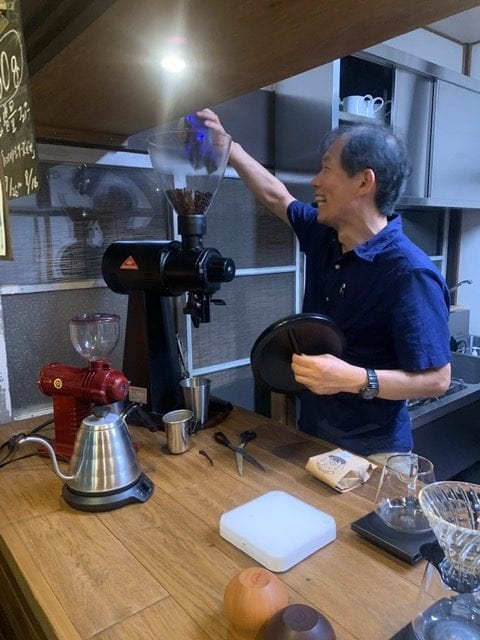
“We are the one cafetería [in Japan] that specializes in Costa Rican coffee. When people come here they can taste coffee of different regions in Costa Rica, and at the same time taste coffee of different processes,” says Ricki.
Cafetero Hayama specializes in selling honey-processed beans, which is a specialty in Costa Rica. Cafetero sells medium- and dark-roast coffees, but the main focus is on the honey coffees. Ricki sells his coffee online and in Hayama, along with instant drip coffee. Originally he only sold coffee online and in a local supermarket in Hayama, but now he’s providing black coffee to customers, roasting and grinding beans for customers in person. Costa Rica is also known for chocolate, and Cafetero sells Gourmet Fields too, which is a fitting partnership since it is in Central America, where chocolate originated centuries ago. Cafetero Hayama provides a sophisticated, pleasurable, and artistic atmosphere for Costa Rican coffee in Japan.
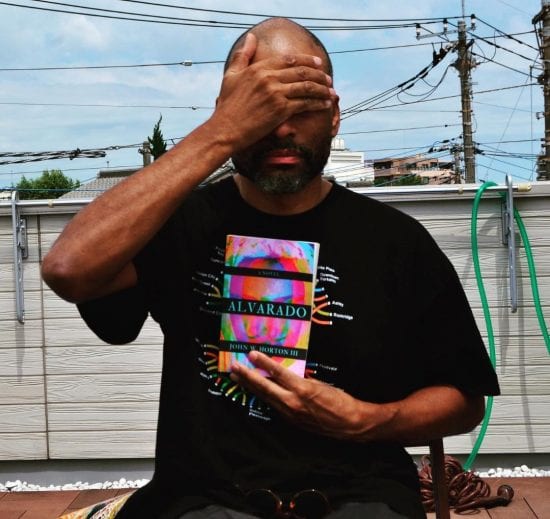
ABOUT THE AUTHOR
John W. Horton III is a 47-year-old writer and teacher who lives between Kawaguchi, Japan, and Los Angeles. His novel Alvarado, published by Atmosphere Press, is available on Amazon.

